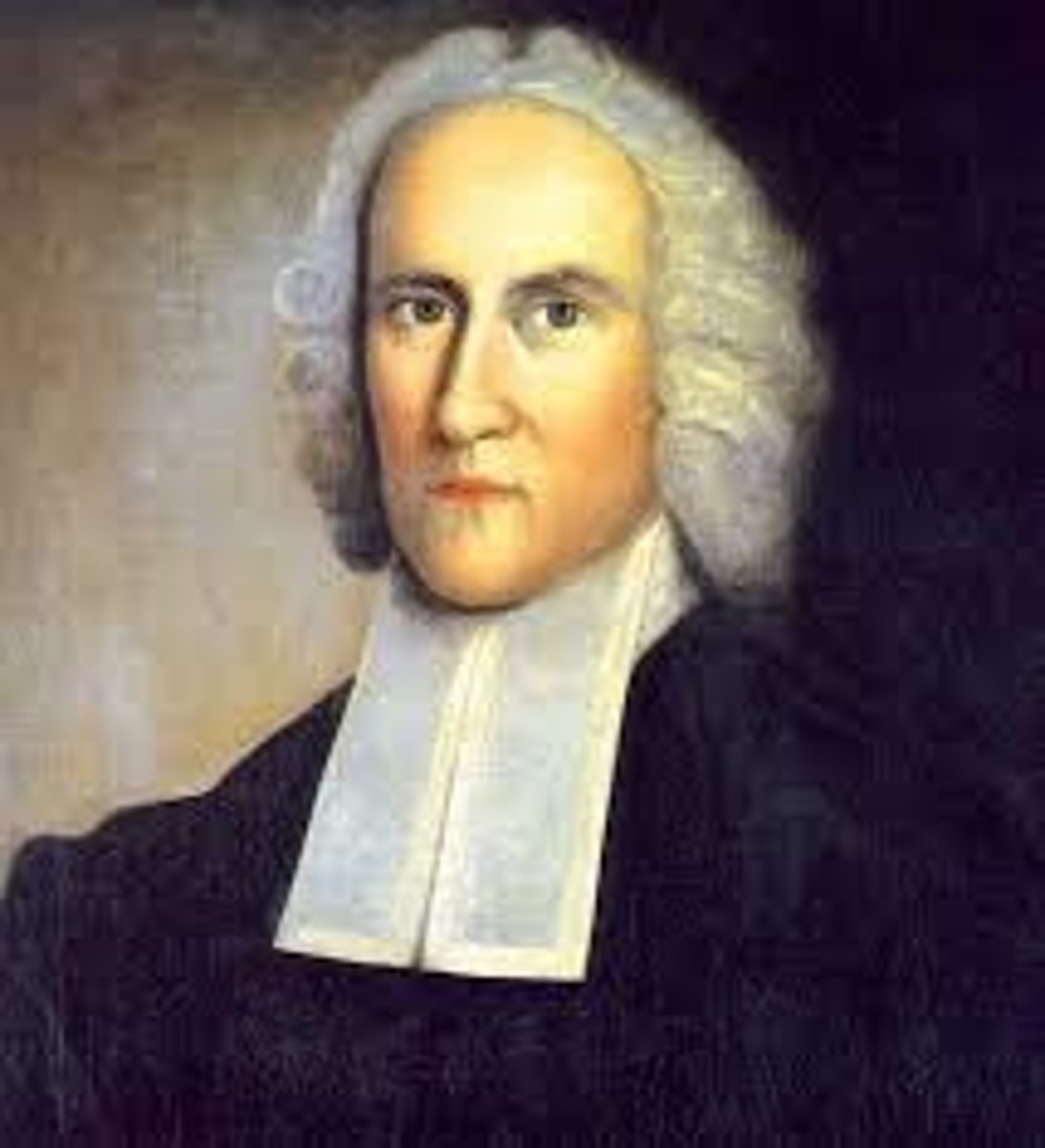Units 1 and 2 AP US History Review
1/47
There's no tags or description
Looks like no tags are added yet.
Name | Mastery | Learn | Test | Matching | Spaced |
|---|
No study sessions yet.
48 Terms
Maize
An early form of corn grown by Native Americans; allowed for a more settled lifestyle
Natives in the Northeast
-Hunted & farmed
-Farming led to need for new soil = moving a lot
-Iroquois Confederation = union of 5 tribes, a powerful force for Europeans - Near Great Lakes and Atlantic Ocean - Some built mounds - used canoes
Natives in the Northwest Coast
- Wet, fertile region in present day Washington, Oregon and northern California
- Plentiful food included salmon and forest animals
- lived in permanent wooden houses and created totem poles
Natives in the Southwest
-Dry region in Arizona/New Mexico area
-Farming w/ irrigation systems (maize)
-Lived in caves, under cliffs, & multi-storied buildings
- created sand art, woven blankets, jewelry, pottery
Natives of the Great Plains
-Either wandering hunters or stationary farming people
- Nomadic hunters used tepees (easy to move)
- Relied heavily on the Buffalo
-Used horses (after introduction by the Europeans) = easy to travel and hunt
Natives in the Great Basin
-High desert region between the Sierras & Rocky Mountains
-Gathered food & harvested pine nuts; began farming
-Basket weaving & dances were important to tradition
-Extreme weather
Columbian Exchange
An exchange of goods, plants, animals, and ideas between the Old World (Europe, Asia and Africa) and the New World (North and South America)
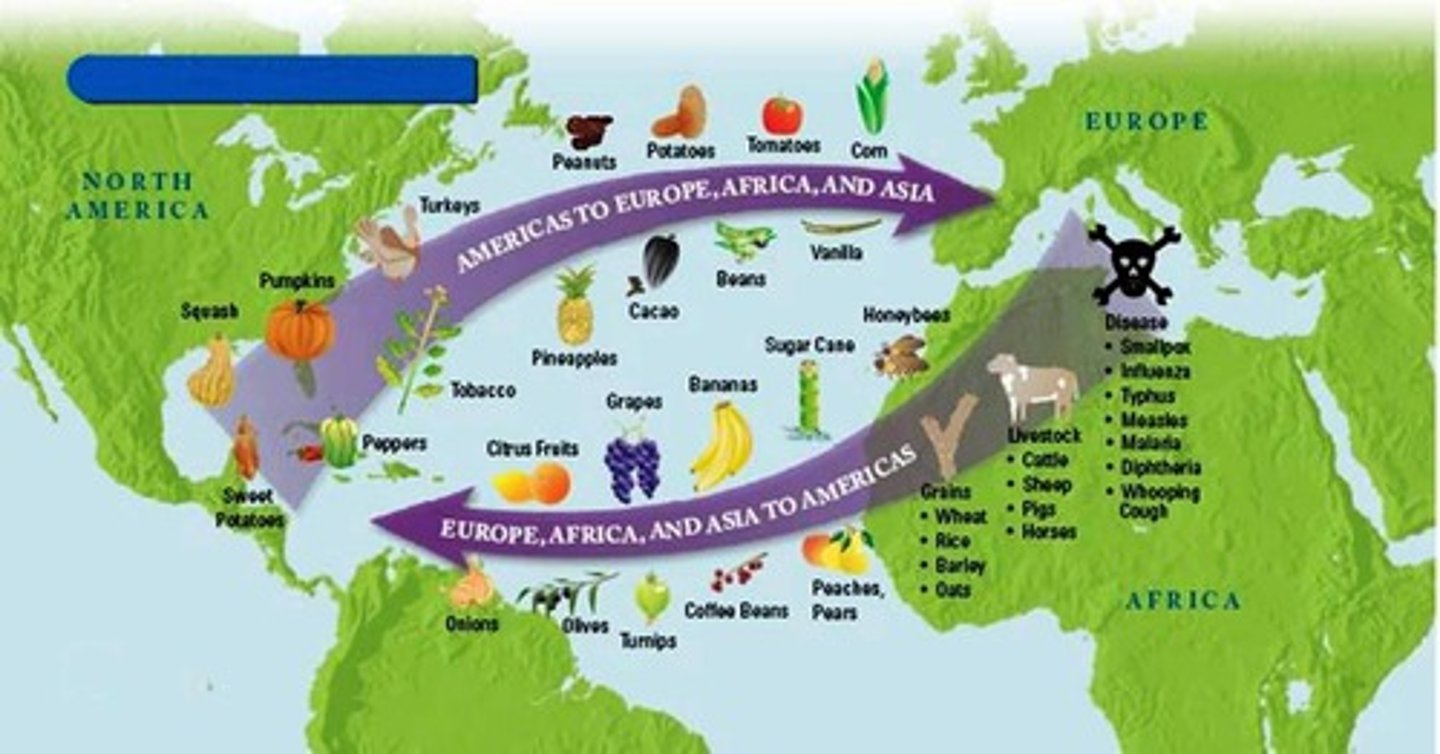
Encomienda System
A system whereby the Spanish crown granted conquerors the right to forcibly employ groups of Indians; it was a disguised form of slavery.
Jamestown
The first permanent English settlement in North America, found in East Virginia in 1607
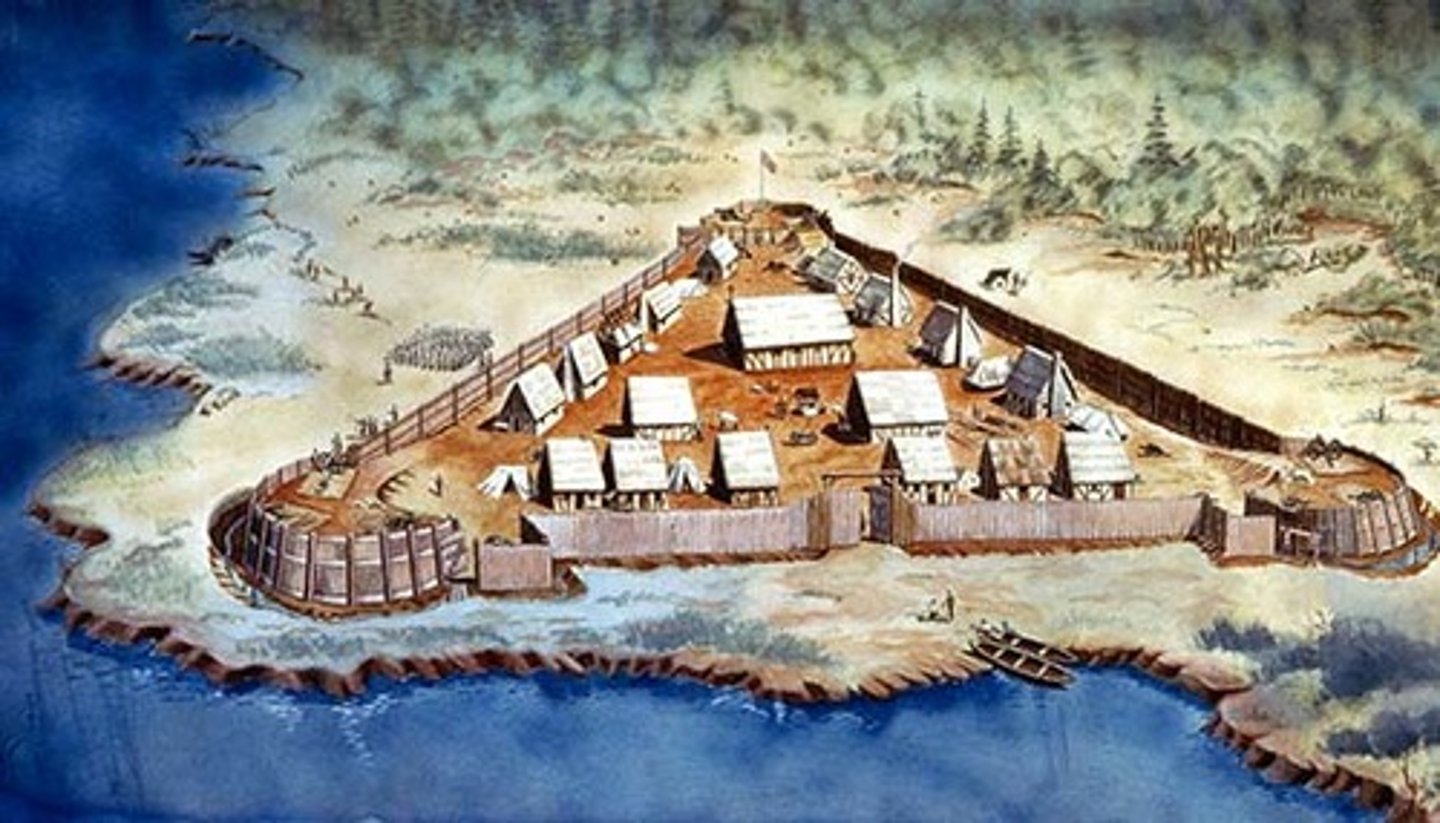
Joint Stock Company
A business, often backed by a government charter, that sold shares to individuals to raise money for its trading enterprises and to spread the risks (and profits) among many investors.
Powhatan
Indian chief and founder of the Powhatan confederacy of tribes in eastern Virginia who negotiated with the original settlers of Jamestown
John Smith
Helped found and govern Jamestown. His leadership and strict discipline helped the Virginia colony get through the difficult first winter.
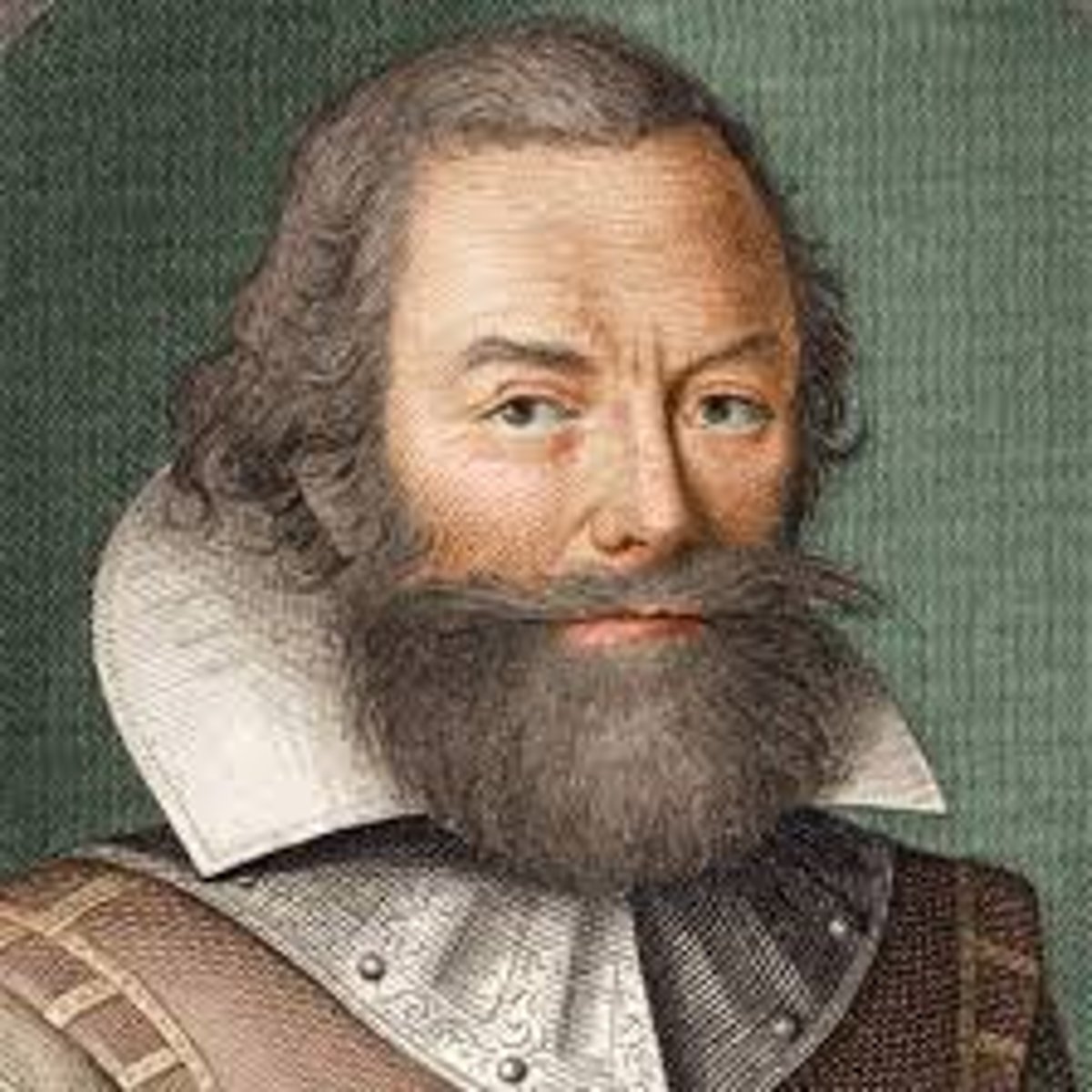
Starving Time
The winter of 1609 to 1610 in Virginia; Only sixty members of the original four-hundred colonists survived. The rest died of starvation because they did not possess the skills that were necessary to obtain food in the new world.
House of Burgesses
The first elected legislative assembly in the New World established in the Colony of Virginia in 1619
John Rolfe
Jamestown colonist who introduced a variety of tobacco that could be grown successfully in Virginia
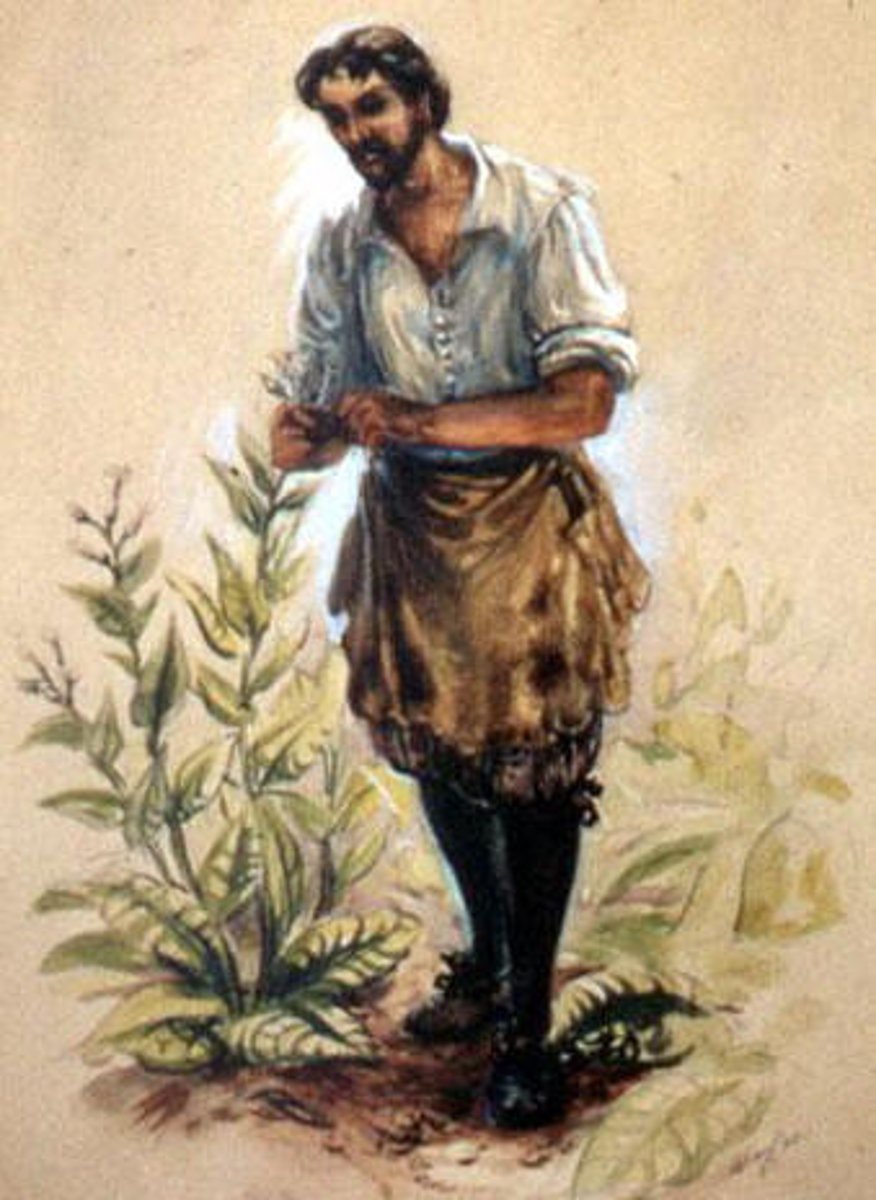
Indentured Servants
Colonists who received free passage to North America in exchange for working without pay for a certain number of years; most common in the Chesapeake region
Headright System
Employed in the tobacco colonies to encourage the importation of indentured servants, the system allowed an individual to acquire fifty acres of land if he paid for a laborer's passage to the colony.
Maryland Act of Toleration (1649)
Guaranteed religious tolerance for all Christians living in Maryland
Navigation Acts
Acts passed in the 1660s to increase colonial dependence on Great Britain for trade; limit goods that were exported to colonies; and stipulate goods that could only be traded with the mother country; caused great resentment in American colonies.
Mercantilism
An economic policy under which nations sought to increase their wealth and power by exporting more than they imported and exploiting the natural resources and markets of their colonies
Bacon's Rebellion
1676 rebellion of landless former servants in Virginia; Exposed the weakness of the indentured servant system to the ruling planter oligarchy, who thereafter relied more and more on African slaves.
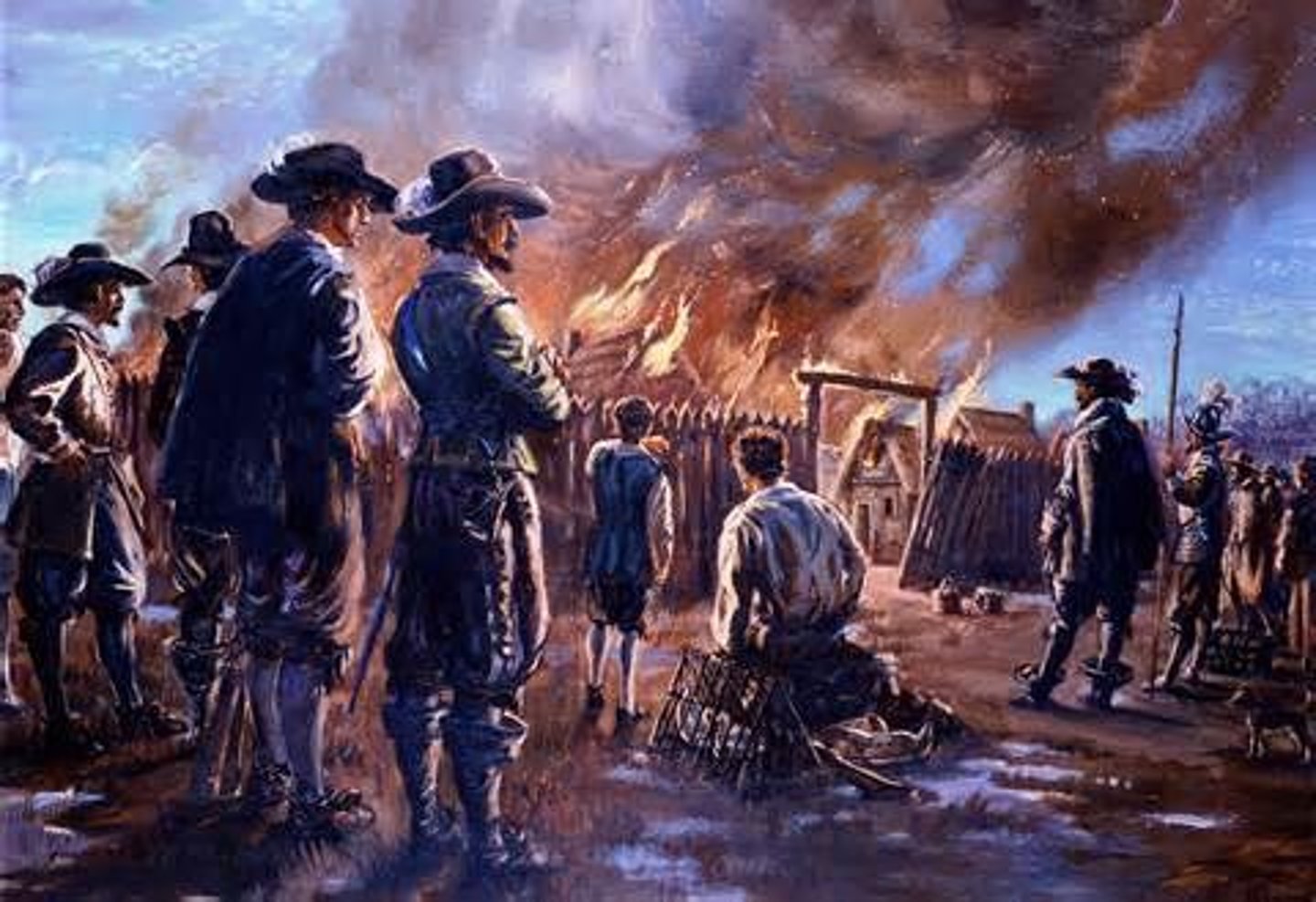
Pueblo Revolt
1680, revolt of indigenous laborers led by Pope'; killed colonists and priests and got Spanish out of modern-day New Mexico for 12 years
Southern Colonies
Maryland, Virginia, North Carolina, South Carolina, Georgia; colonies with rich soil and long growing seasons; relied heavily on cash crops and slavery
Chesapeake Colonies
Virginia and Maryland; subgroup of the Southern Colonies where tobacco was the main cash crop
New England Colonies
Massachusetts, Connecticut, Rhode Island, New Hampshire; strong Puritan ties; diversified economies; centers of education and revolutionary ideals
Pilgrims
Group of English Protestant separatists who established Plymouth Colony in Massachusetts in 1620 to seek religious freedom
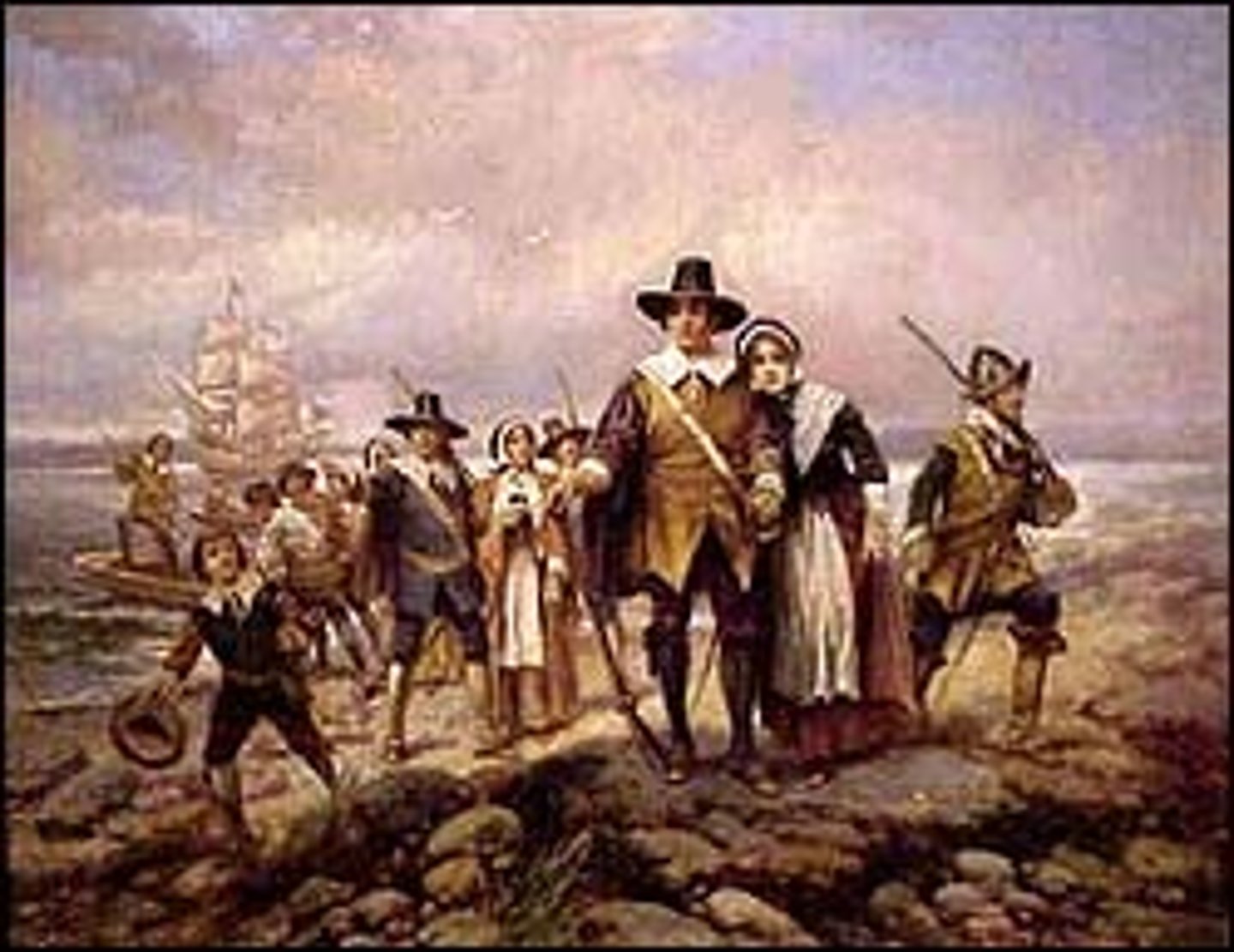
Mayflower Compact
1620 - The first agreement for self-government in America. It was signed by the 41 men on the Mayflower and set up a government for the Plymouth colony.
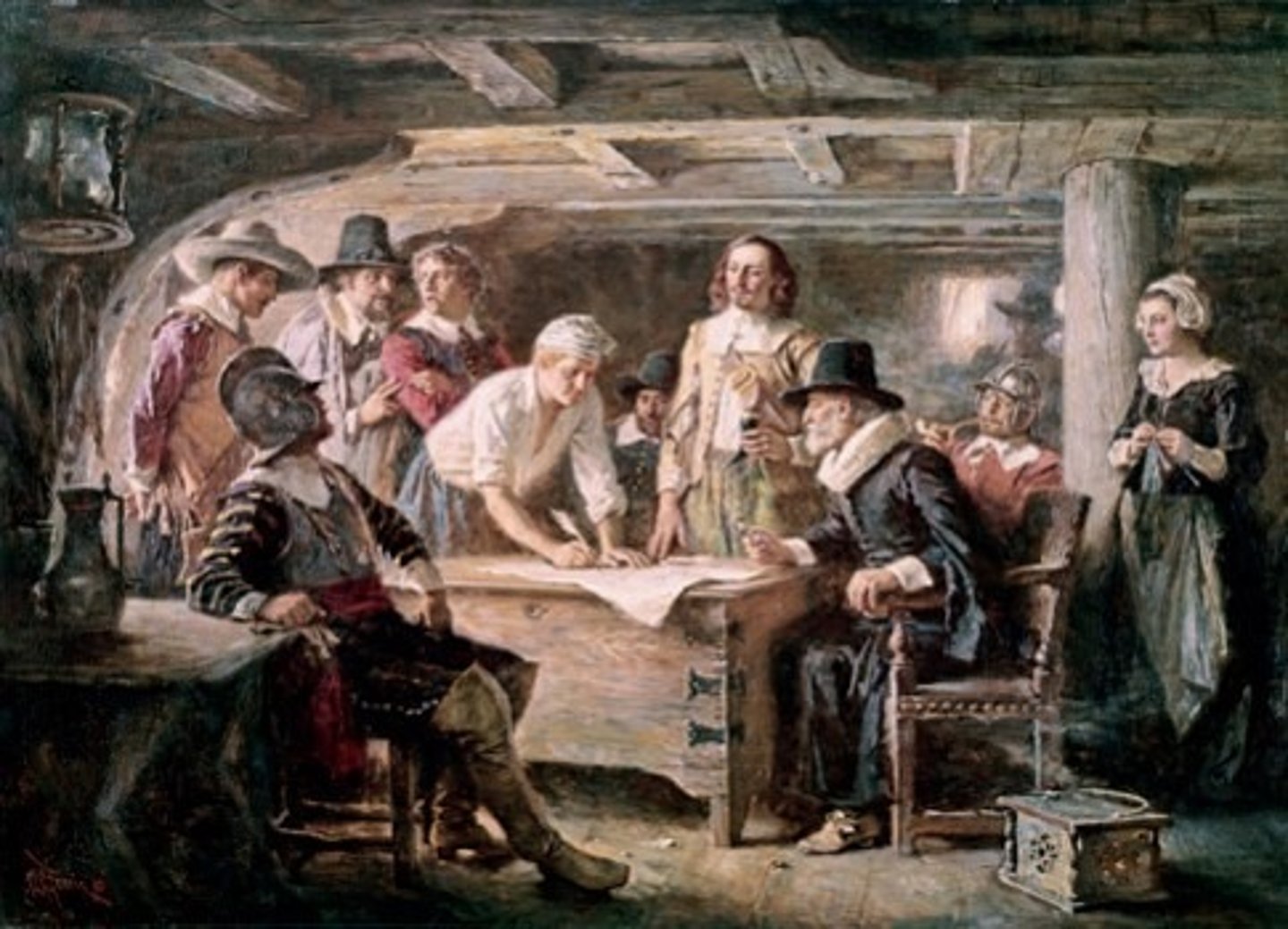
"City on a Hill"
Biblical ideal, invoked by John Winthrop, of a society governed by civil liberty (where people did only that which was just and good) that would be an example to the world
John Winthrop
Puritan leader of the Great Puritan Migration who became the long-serving governor of the Massachusetts Bay Colony
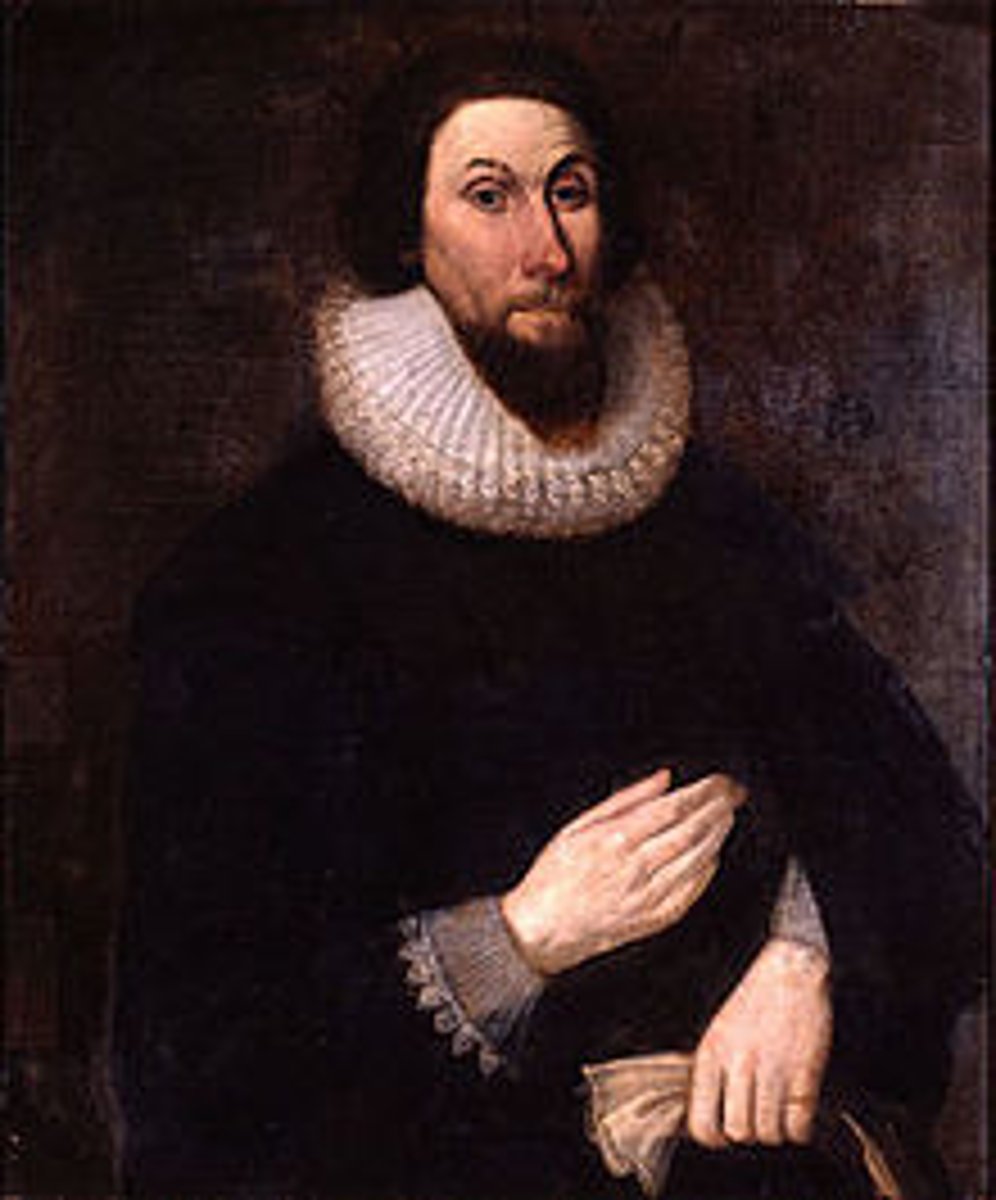
Puritans
Protestant sect in England hoping to "purify" the Anglican church of Roman Catholic traces in practice and organization; founded Massachusetts Bay colony in 1630
Anne Hutchinson
American colonist (born in England) who was banished from Boston for her religious views (1591-1643) and practice of preaching
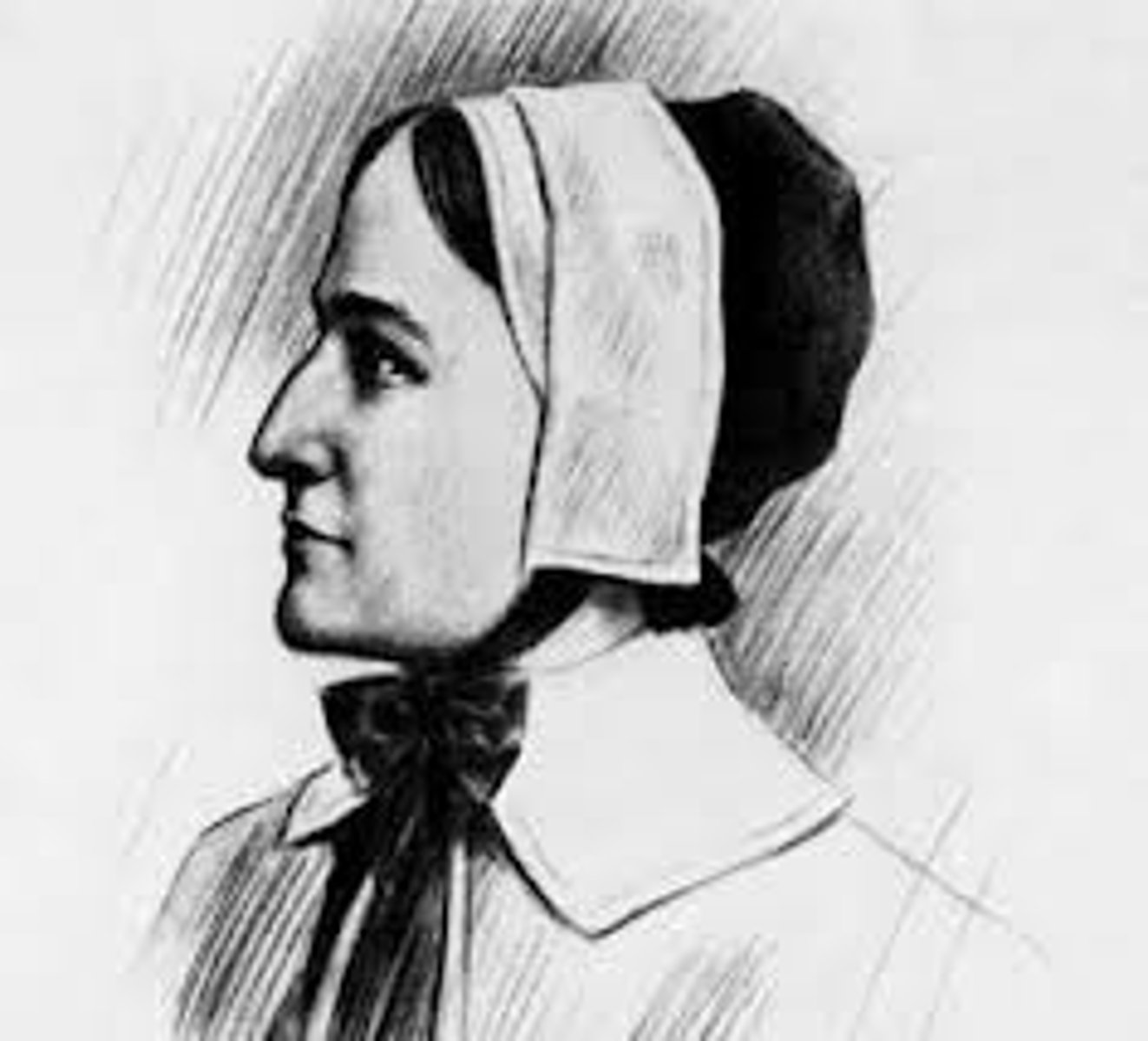
Roger Williams
A dissenter who clashed with the Massachusetts Puritans over separation of church and state and was banished in 1636, after which he founded the colony of Rhode Island
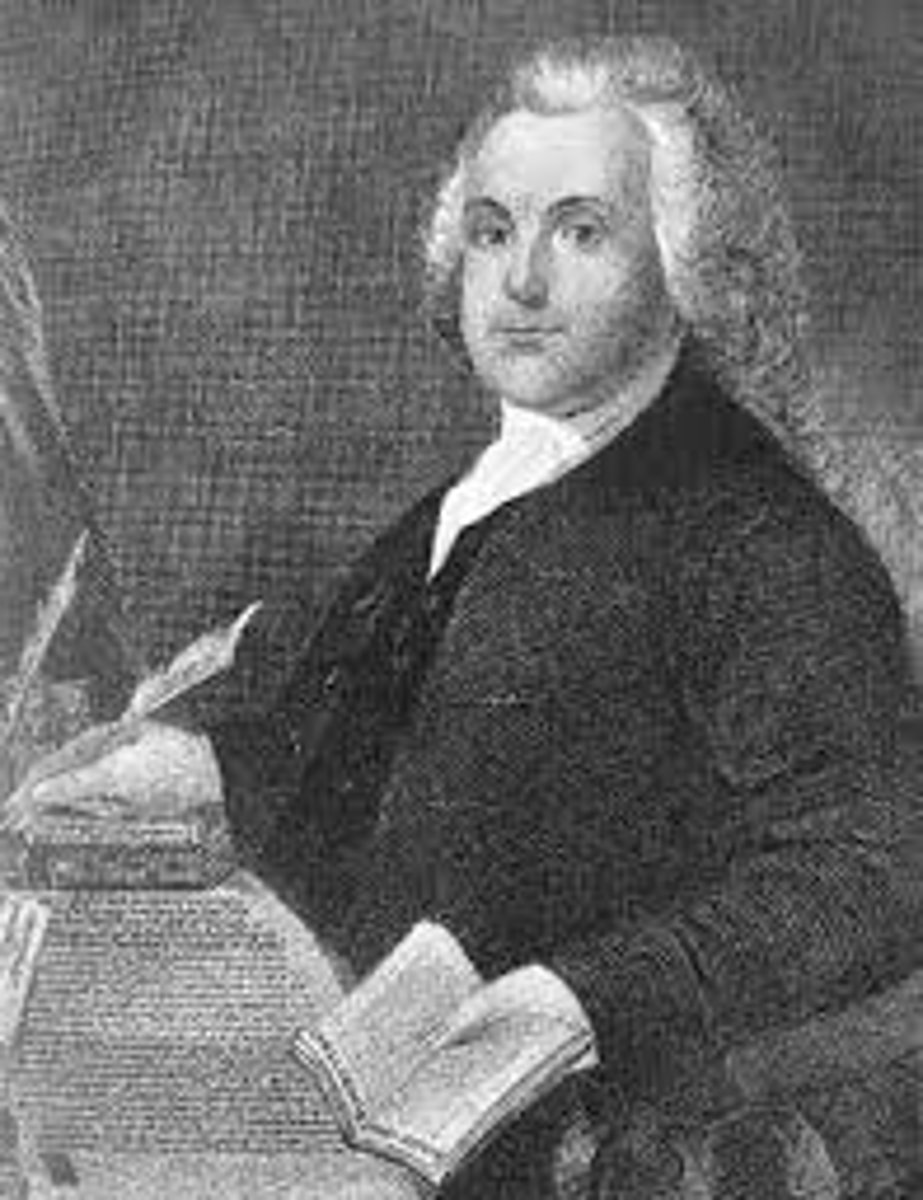
Salem Witch Trials
1629 outbreak of witchcraft accusations in a Massachussetts Bay Puritan village marked by an atmosphere of fear and hysteria
Middle Colonies
New York, New Jersey, Pennsylvania, Delaware; grew wheat as a cash crop; most religiously tolerant and ethnically diverse region in the colonies; most big cities were located here
William Penn
A Quaker that founded Pennsylvania to establish a place where his people and others could live in peace and be free from persecution.
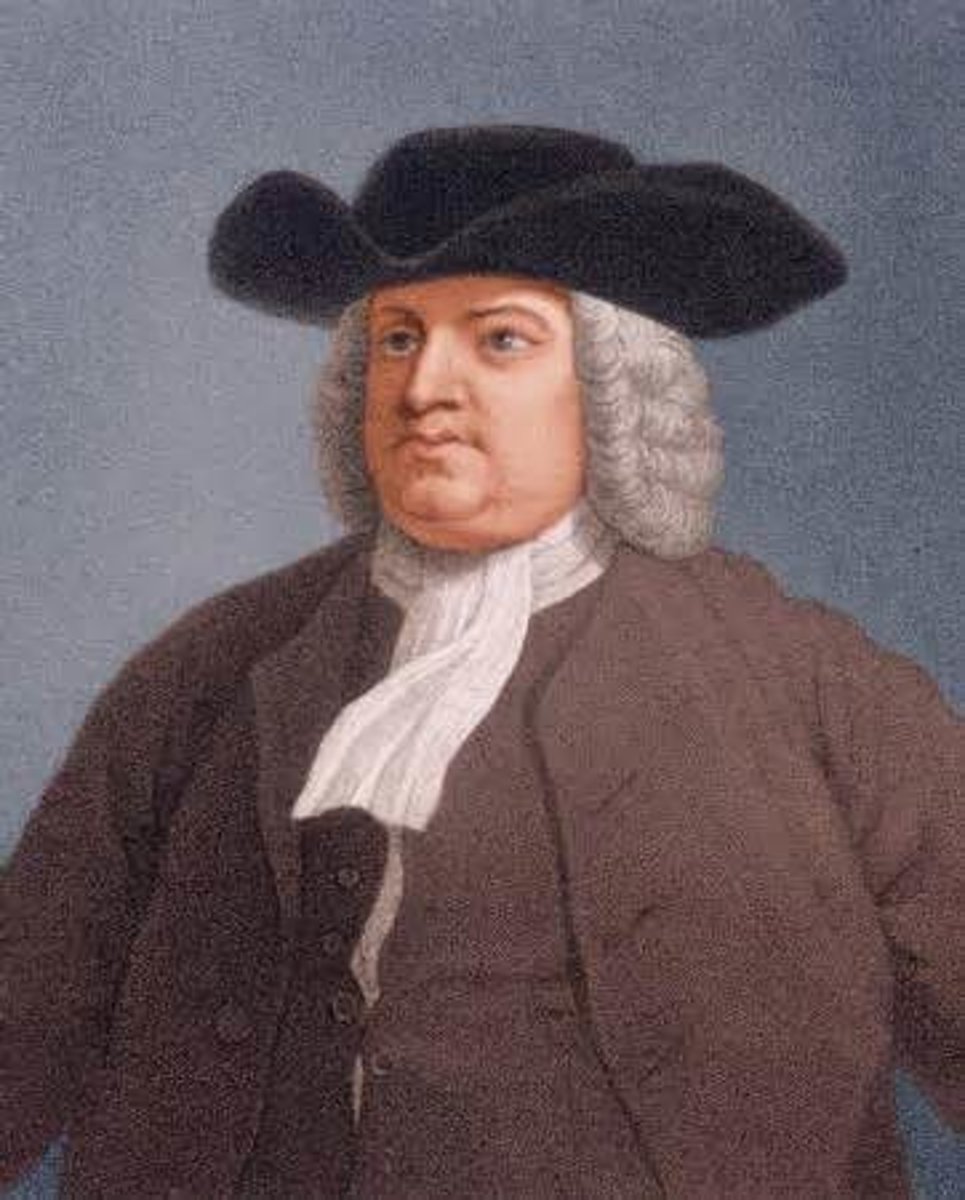
Quakers
English dissenters who broke from Church of England, preached a doctrine of pacifism, inner divinity, and social equity; under William Penn they founded Pennsylvania
King Philip's War
1675 conflict between English colonists and Native Americans in the New England colonies over expansion into western territories
Enlightenment
A movement that emphasized science and reason as guides to help see the world more clearly
The First Great Awakening
Religious revival in the colonies in 1730s and 1740s; led by George Whitefield and Jonathan Edwards; The movement attempted to combat the growing secularism and rationalism of mid-eighteenth century America. Religious splits in the colonies became deeper.
Sinners in the Hands of an Angry God
Jonathan Edwards' sermon denouncing humans as sinners saved only by the grace of God
Predestination
The Puritan belief that God had determined if a person would be saved (go to heaven) before birth.
Christopher Columbus
An Italian navigator who was funded by the Spanish Government to find a passage to the Far East. He is given credit for discovering the "New World" in 1492, even though at his death he believed he had made it to the Indies. He made four voyages to the "New World."
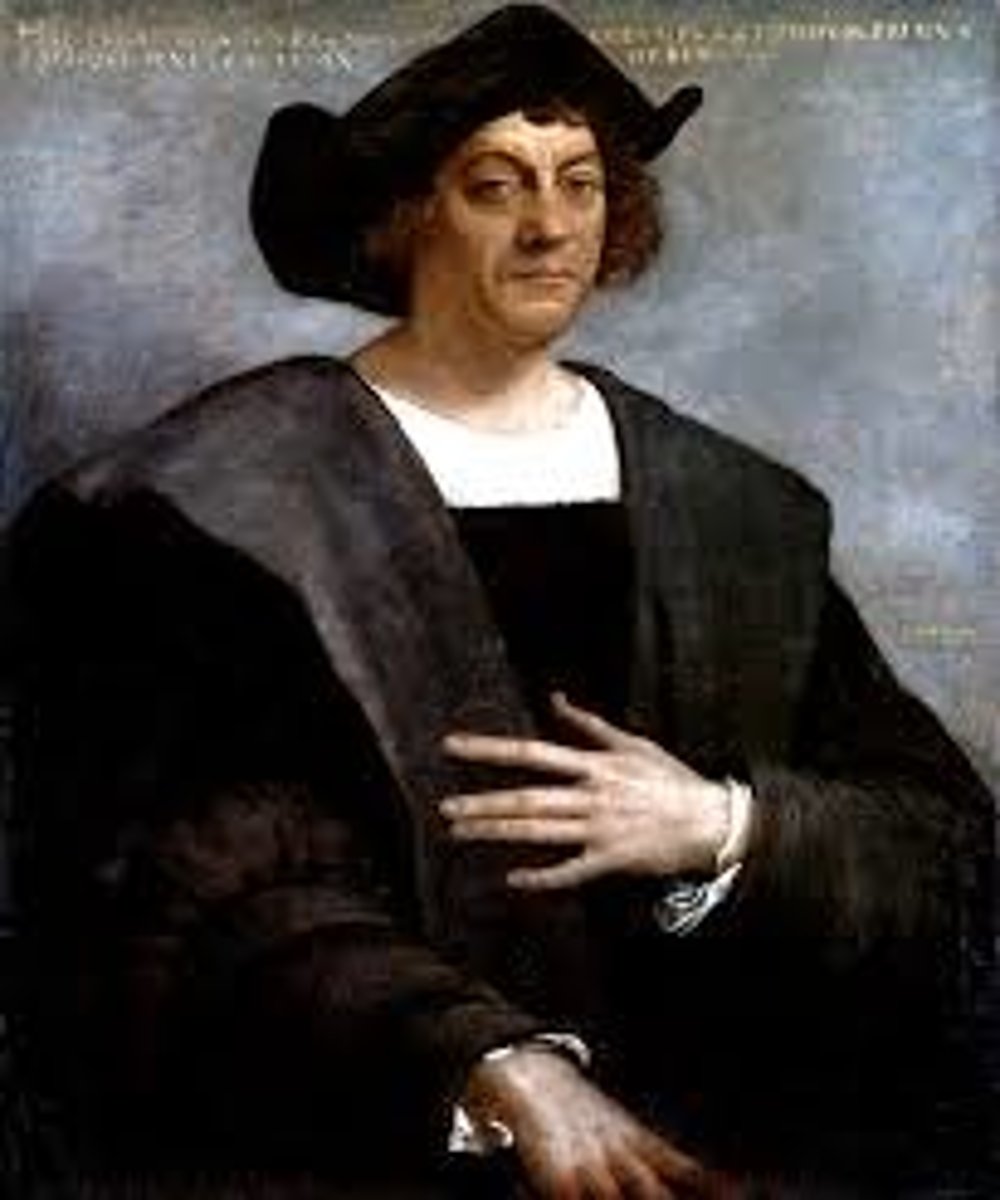
Bartolome de Las Casas
First bishop of Chiapas, in southern Mexico. He devoted most of his life to protecting Amerindian peoples from exploitation. His major achievement was the New Laws of 1542, which limited the ability of Spanish settlers to compel Amerindians to labor.
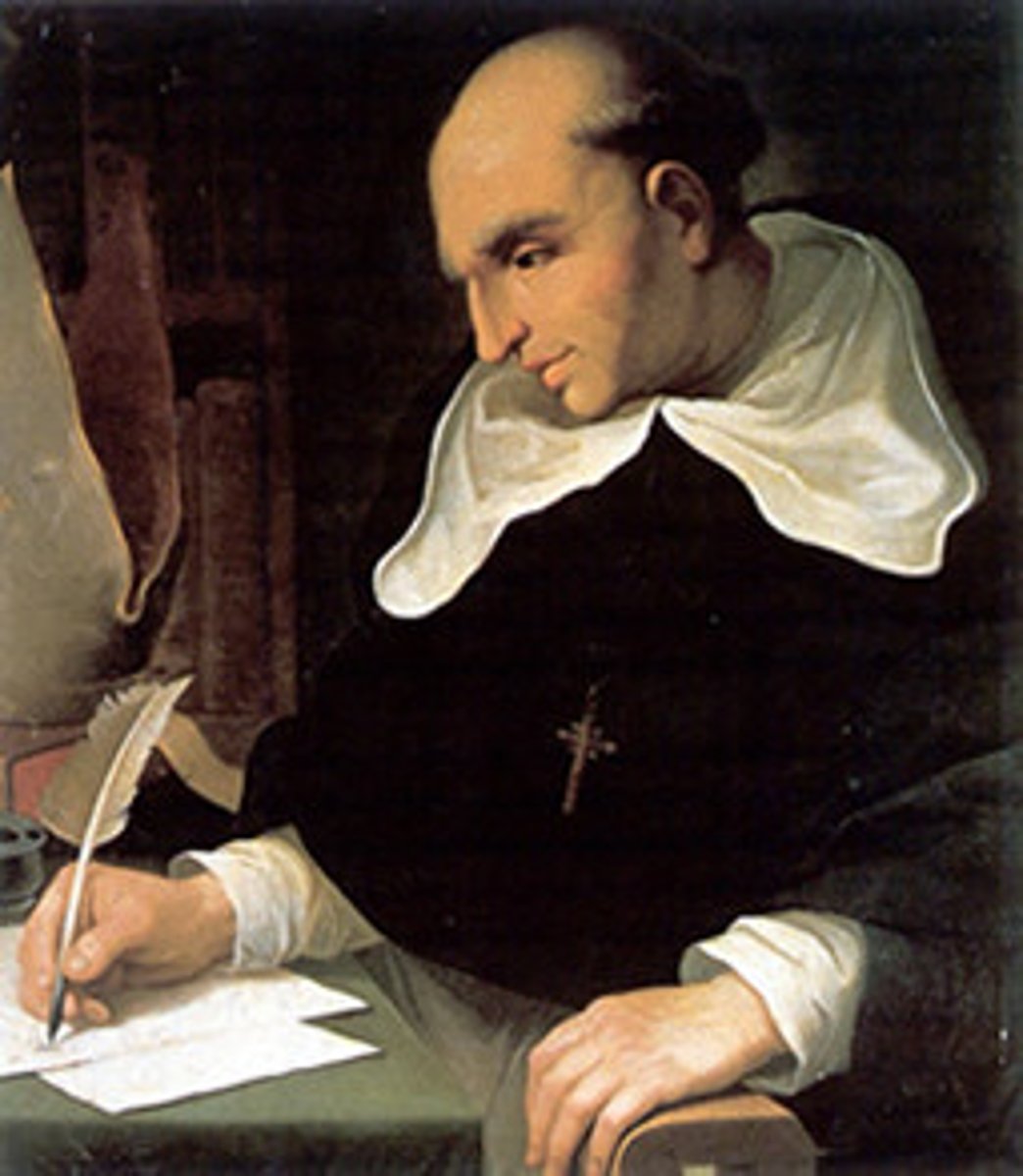
Triangular Trade
A three way system of trade during 1600-1800s: Africa sent slaves to America, America sent Raw Materials to Europe, and Europe sent Guns and Rum to Africa
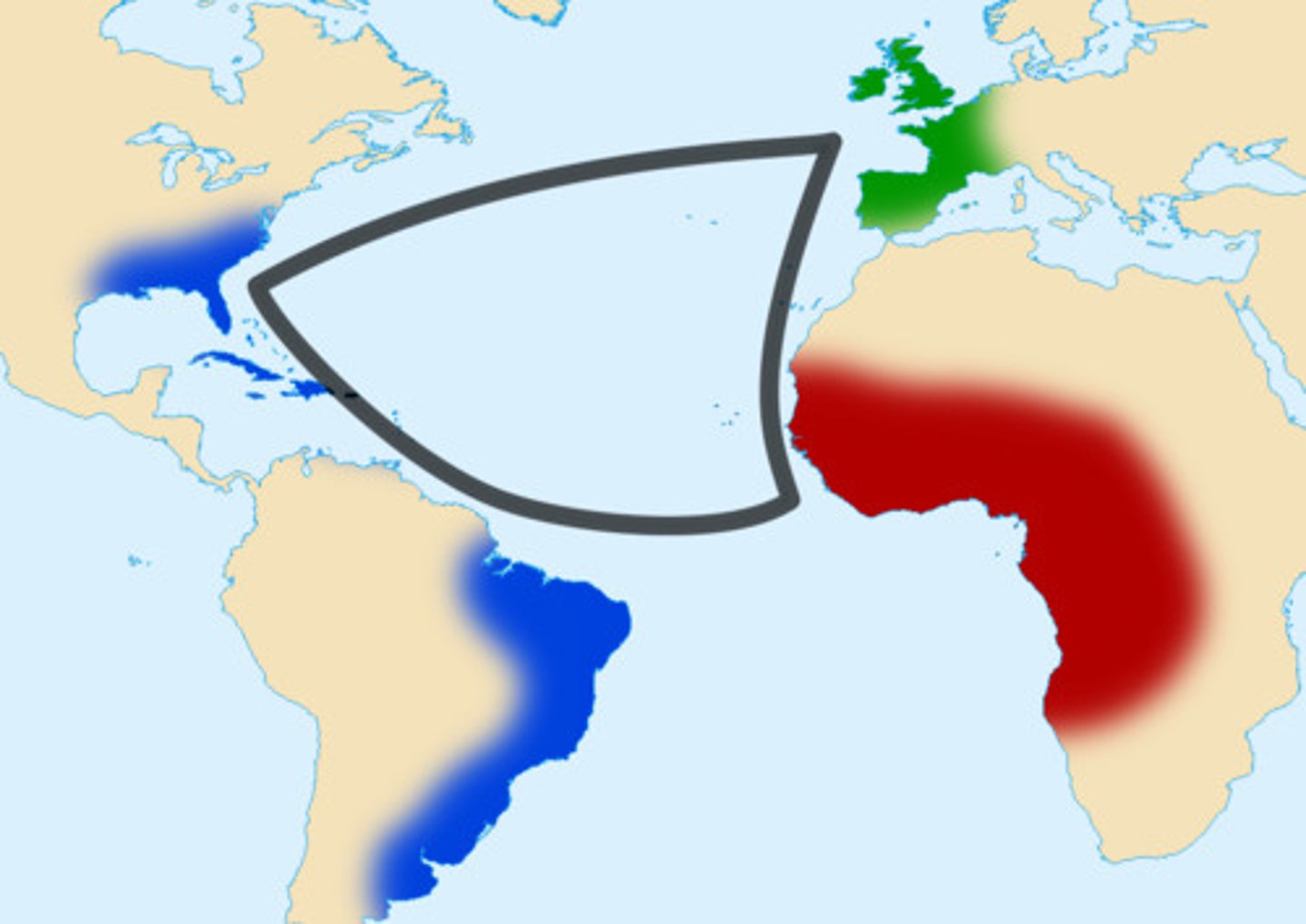
Middle Passage
A voyage that brought enslaved Africans across the Atlantic Ocean to North America and the West Indies
Chattel Slavery
A system of bondage in which a slave has the legal status of property and so can be bought and sold.
Charter
A document that gives the holder the right to organize settlements in an area
Jonathan Edwards
American preacher during the First Great Awakening who authored "Sinners in the Hands of Angry God"
